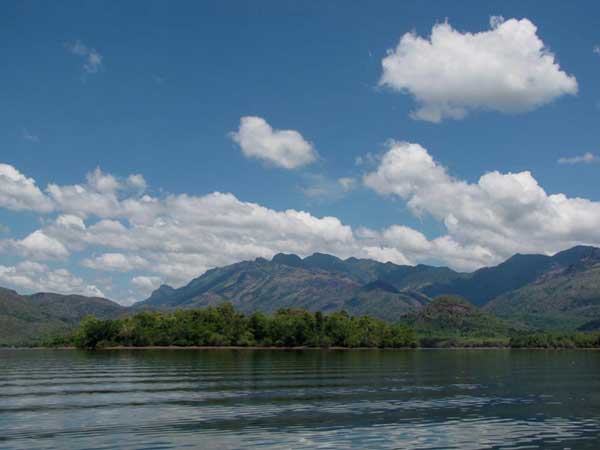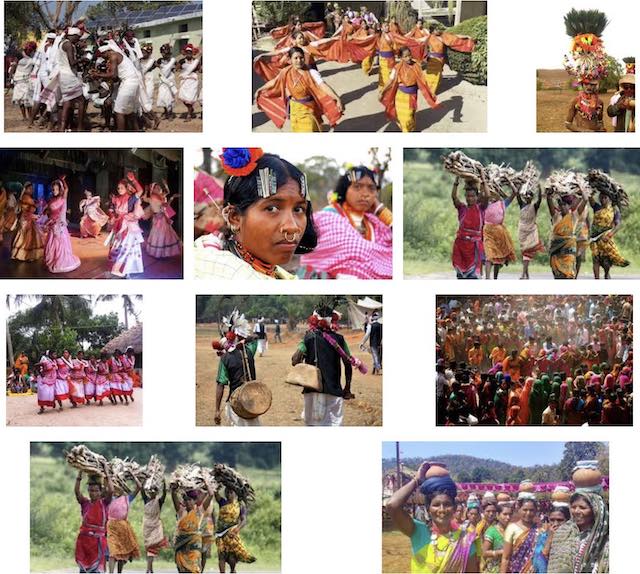
Photo courtesy Davidson Sargunam >>
The traditional knowledge of people belonging to Kaani tribe in the Western Ghats of Kanyakumari district has helped a research student secure her doctorate.
The Kaani tribe, who inhabit hills and deep jungles, are a veritable storehouse of traditional wisdom. Their traditional knowledge is passed orally through generations. Mushrooms form a prominent place in their menu. Since Kanyakumari district is blessed by two monsoons, the tribal people go in search of mushrooms after the rain. Environmental educator S.S. Davidson, who is conducting research on the culture of the Kaani tribe, told The Hindu that the tribal people shared their knowledge on a host of edible mushrooms to a team of mycologists headed by him. A research scholar, Johnsy Moses, chose an edible mushroom, ‘Lentinus,’ for her doctoral research at the Centre for Advanced Studies in Botany of Madras University.
The edible mushroom was cultured in controlled laboratory conditions in the university. […]
The ‘Lentius’ mushroom grows at the base of bamboos. If bamboo clusters were destroyed or degraded, there was every possibility of this edible mushroom species facing extinction owing to loss of habitat.
These wild mushrooms could be commercially exploited to add variety to the menu, said Davidson. The research scholar was awarded PhD degree for her research. She was guided by V. Kaviarasan, a mycology expert in Madras University.
Source: Chennai student conducts study on mushrooms of Western Ghats – The Hindu
Address : https://www.thehindu.com/todays-paper/tp-national/tp-tamilnadu/chennai-student-conducts-study-on-mushrooms-of-western-ghats/article4593311.ece
Date Visited: 3 January 2022
Up-to-date reports by Indian experts and journalists
Search tips
Combine the name of any particular state, language or region with that of any tribal (Adivasi) community.
Add keywords of special interest (music, poetry, dance just as health, sacred grove and biodiversity); learn about the rights of Scheduled Tribes such as the “Forest Rights Act” (FRA); and the United Nations “Declaration on the Rights of Indigenous Peoples”, “Universal Declaration of Human Rights”, “women’s rights”, or “children’s right to education”.
Specify any other issue or news item you want to learn more about (biodiversity, bonded labour and human trafficking, climate change, ecology, economic development, ethnobotany, ethnomedicine, global warming, hunter-gatherers in a particular region or state, prevention of rural poverty, water access).
For official figures include “scheduled tribe ST” along with a union state or region: e.g. “Chhattisgarh ST community”, “Himalayan tribe”, “Scheduled tribe Tamil Nadu census”, “ST Kerala census”, “Particularly Vulnerable Tribal Group Jharkhand”, “PVTG Rajasthan”, “Adivasi ST Kerala”, “Adibasi ST West Bengal” etc.
In case the Google Custom Search window is not displayed here try the following: (1) toggle between “Reader” and regular viewing; (2) in your browser’s Security settings select “Enable JavaScript” | More tips >>
Note: hyperlinks and quotes are meant for fact-checking and information purposes only | Disclaimer >>
List of websites covered by this Google custom search engine
Academia.edu (platform for academics to share research papers) – www.academia.edu
Archive.org – https://archive.org
Centre for Science and Environment – https://www.cseindia.org
Current Conservation – https://www.currentconservation.org
Development and Cooperation (D+C) https://www.dandc.eu
Down To Earth (India) – www.downtoearth.org.in
India Environment Portal – www.indiaenvironmentportal.org.in
Harnessing Nature Magazine – https://harnessingnature.online
Mongabay-India – https://india.mongabay.com
M S Swaminathan Research Foundation – www.mssrf.org
Navdanya (protecting India’s biodiversity based food heritage) – https://navdanya.org
Third World Network (Penang, Malaysia) – https://twn.my
The Shola Trust (nature conservation in the Nilgiri region) – www.thesholatrust.org

Indian online periodicals and platforms | Images view >>
~ ~ ~
Personalize your CustomSearch by combining other search words >>
(e.g. name of a tribal community and region, a craft, or dance and puppetry)
Research the above issues with the help of Shodhganga: A reservoir of theses from universities all over India, made available under Open Access >>
Note: hyperlinks and quotes are meant for fact-checking and information purposes only | Disclaimer >>
Find publications by reputed authors (add “open access” for freely downloadable content)
PDF-repository: texts quoted & further reference (Google Drive) >>
Learn more
Anthropology | Ekalavya (Eklavya) | Government | Networking | Organisations
Colonial policies | Bonded labour, Forced labour, Slavery & Zamindar | “Criminal tribe”
Biodiversity | Biodiversity hotspot | Hyderabad biodiversity pledge | Western Ghats – tribal heritage & ecology
Climate change | Audio | The Climate Question (BBC Podcast)
Coastal region | Mangrove forest | Water | Wetland
Customs | Homes and utensils | Modernity | Native science | Revival of traditions
eBooks, eJournals & reports | eLearning
eBook | Background guide for education
Ecology | Eco tourism | Ethnobotany | Sustainable agriculture | Wildlife tourism
Food distribution | Recommendations
Forest Rights Act (FRA) | Hunter-gatherers | Nishad (Nishada, Sanskrit Niṣāda, “tribal, hunter, mountaineer, degraded person outcast”) | Vanavasi (Vanvasi, Vanyajati)
Health and nutrition | Antivenom | Ayurveda
History | Environmental history and what makes for a civilization – Romila Thapar
Hunter-gatherer | Man animal conflict | Vanavasi | Sakuntala narrative
Fruit | Honey & bees | Indigenous knowledge systems | Mushroom | Vegetable
Involving tribal communities in conservation (Kanyakumari)
Mountains | Nishad (Nishada, Sanskrit Niṣāda, “tribal, hunter, mountaineer, degraded person outcast”) | Particularly vulnerable tribal group (PVTG)
Nature and wildlife | Bamboo | Bird | Crocodile | Elephant | Insect | Snake | Tiger | Trees
Sacred grove | Worship and rituals
Scheduled Tribes | Classifications in different states
Success story | “The tribal food basket has always been diverse and nutritious”
United Nations on climate change
What is the Forest Rights Act about?
Who is a forest dweller under this law, and who gets rights?